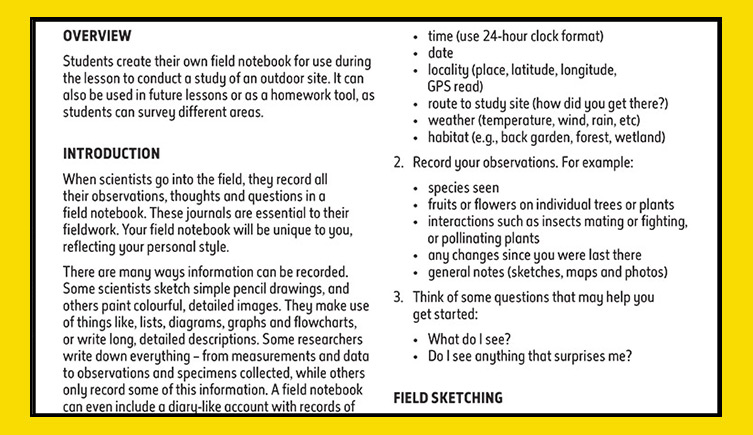About this resource
- Resource type: practical activity
- Theme: Tools for outdoor enquiry
In this activity, students create their own field notebook for use during the lesson to conduct a study of an outdoor site. It can also be used in future lessons or as a homework tool, as students can survey different areas.

Geographical skills and fieldwork
Geographical skills and fieldwork
Human and physical geography
Experimental skills and investigations
Biodiversity and Interdependence
I can sample and identify living things from different habitats to compare their biodiversity and can suggest reasons for their distribution. SCN 3-01a
I can use a range of maps and geographical information systems to gather, interpret and present conclusions and can locate a range of features within Scotland, UK, Europe and the wider world. SOC 3-14a
Through observing and recording, I can create material that shows accuracy of representation. EXA 3-04a
Inquiry and Investigative Skills:
Plans and designs scientific investigations and enquiries:
Carries out practical activities within a variety of learning environments:
Analyses, interprets and evaluates scientific findings:

Use our learning resources with your students to explore the nature on your doorstep and discover the challenges it faces.

Taking small, actionable steps can have a big impact when it comes to helping the planet.